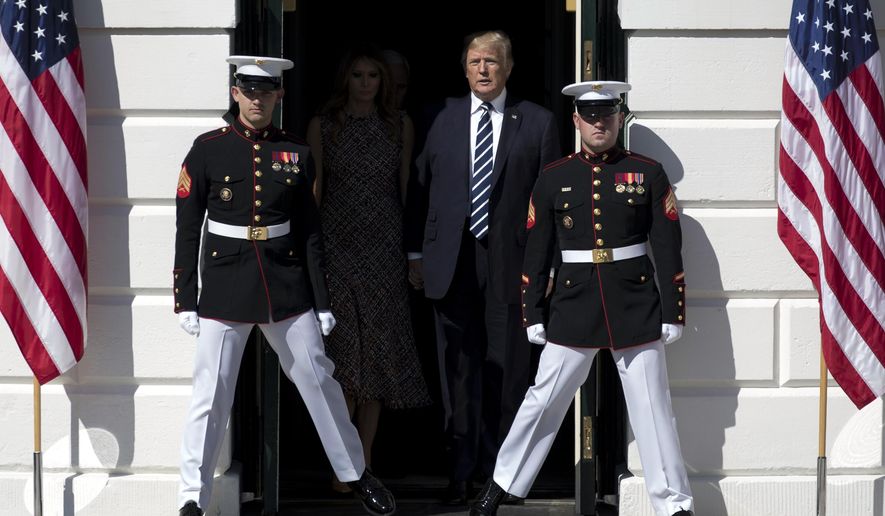OPINION:
Americans who like to invoke President Ronald Reagan should be reminded of his words about the need for agreement, now more than ever. “The person who agrees with you 80 percent of the time is a friend and an ally — not a 20 percent traitor.”
Although some may think I am referring to the health care debate, I am actually looking at President Trump’s recent U.N. speech. There has been much rending of clothing and wailing while counting the number of times he used the word sovereignty, rocket man or the “gasps in the room” when he threatened to destroy North Korea. This is reminiscent of the media attacking President Bush for his “axis of evil” line. A line, one might add, that was as right as it was prophetic.
Many have pointed to the supra-realism of the speech, by stressing America first. However, the speech was not a clarion call for isolationism, but a reaffirmation of American interests, even lauding past American interventions such as the Marshall Plan. We should be reminded that the United Nations is not a world congress, but an assemblage of sovereign states which mostly pursue realistic self-interest. There is a smattering of neo-Marxists such as Venezuela, Ecuador and Cuba with at least one theocratic jihadi as is the case of Iran. The unique figure, as always, is the United States attempting to balance its international liberal values in democracy promotion and human rights with its calculated vital and national interests.
There are instances where this is transformed into full-blow democratic-realism as in the case of Theodore Roosevelt, Harry Truman, Ronald Reagan and George W. Bush. However, in general, presidents walk a fine line between the two. There are many points along this line to consider. Mr. Trump did not state that nations are simply sovereign, but that they should be “strong, independent, and free.” He also did not ignore human rights when he called on nations to “respect the interests of their own people,” allowing individuals to “flourish in the fullness of the life intended by God.” His warning of sovereignty was not only to affirm American independence but to reject those who threaten it in places like Ukraine and the South China Sea.
In an almost Burkean moment, the most striking line of the speech was not “rocket man,” but this: “If the righteous many do not confront the wicked few, then evil will triumph.” This is classical conservatism writ large. Edmund Burke and the conservative foundational thinkers knew that sovereignty was not only critical, but organic. One can’t believe in American exceptionalism and not believe in the totality of American sovereignty and independence. For far too long and under too many administrations has the United States softened its approach only to be left with a worse situation, often placing the American people in an even more dangerous and vulnerable position. There is no better example of this than North Korea.
There were 10 clear areas in the president’s speech that conservatives, realists and classic liberals could find a battle cry. The president affirmed his call for a $700 billion defense budget. Second, his overall theme was the global danger of rogue and failed states. Third, he put on notice all players that North Korea is finally on a short leash and that the game-playing it has engaged in since 1953 has hit a wall. Fourth, Iran has finally been called out not only for its insidious nuclear program but as a “corrupt dictatorship” whose evil is far broader than its weapons program.
Fifth was his public declaration that the Assad dictatorship in Syria is a criminal regime. Sixth, the president naturally emphasized the threat of Islamic extremist terrorism. Seventh, he charged the U.N. with the typical conservative mantra to reform. Eighth, he called out the duplicity of Cuba, and ninth the threat posed by Venezuela. Finally, he made his declaration against socialism: “The problem in Venezuela is not that socialism has been poorly implemented, but that socialism has been faithfully implemented.”
The world is better off when America is strong, independent and free. We were founded on the premise of sovereignty; it was this fundamental argument that brought about the revolution against the British crown. It is only when America is truly sovereign and pursuing her values and interests does the world gain stability and peace.
• Lamont Colucci is a national security fellow at the American Foreign Policy Council.




Please read our comment policy before commenting.